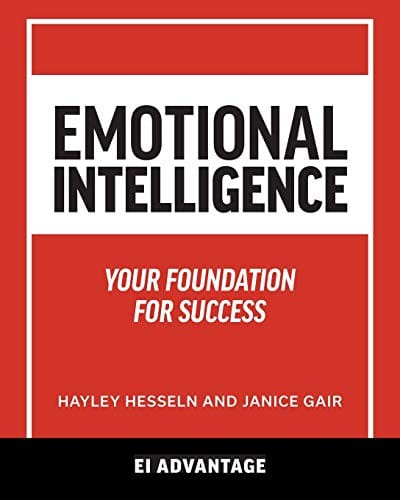Mastering Emotional Intelligence for Personal and Professional Success
Discover what emotional intelligence is, why it matters and how to develop it to improve relationships, leadership and well-being.

What Is Emotional Intelligence?
Emotional Intelligence, often shortened to EI or EQ, is the ability to identify, understand, manage, and use emotions in positive ways. Unlike IQ, which measures cognitive ability, EI focuses on how well you perceive emotions in yourself and others, integrate that information into your thinking, and adjust your behavior accordingly. High emotional intelligence helps you communicate effectively, empathize with coworkers and loved ones, overcome challenges, and defuse conflict.
The Five Components of Emotional Intelligence
Self-Awareness
Self-awareness is the cornerstone of emotional intelligence. It involves recognizing your own emotions and how they influence your thoughts, decisions, and actions. People with strong self-awareness can pinpoint the triggers that cause stress or excitement and are honest about their strengths and limitations, allowing them to respond rather than react.
Self-Regulation
Self-regulation is the ability to control or redirect disruptive emotions and impulses. Instead of suppressing feelings, you channel them constructively. Techniques such as deep breathing, reframing negative thoughts, and pausing before responding can help. Leaders who master self-regulation create a calm environment and model composure during crises.
Motivation
Intrinsic motivation refers to the drive that comes from within. People with high EQ are typically motivated by a deep, personal desire to fulfill goals rather than external rewards like money or status. This internal drive fosters resilience, commitment, and a continual quest for improvement, leading to greater long-term success.
Empathy
Empathy is the capacity to sense and understand the feelings of others. It goes beyond sympathy by incorporating perspective-taking and emotional attunement. Empathetic people listen actively, pick up on non-verbal cues, and consider emotions when making decisions, helping them build stronger relationships and foster inclusive environments.
Social Skills
Social skills convert self-awareness, regulation, motivation, and empathy into effective interaction. These skills include clear communication, conflict resolution, persuasion, and collaboration. Strong social ability enables you to inspire teams, manage disagreements diplomatically, and cultivate networks that elevate both personal and organizational objectives.
Why Emotional Intelligence Matters at Work
In today’s collaborative workplaces, emotional intelligence is a critical predictor of performance. Studies show that leaders with high EQ create more engaged teams, reduce turnover, and stimulate creativity. Because they recognize emotions early, they can address misunderstandings before they escalate, saving time and resources. Employees with strong emotional intelligence adapt faster to change, welcome feedback, and contribute to a positive company culture, which directly influences the bottom line.
Furthermore, hiring managers increasingly value emotional competencies during recruitment. Technical skills may land someone an interview, but emotional intelligence often determines who secures the role and, later, who earns promotions. From giving a compelling presentation to negotiating a contract, emotional intelligence affects nearly every professional interaction.
Developing Your Emotional Intelligence
The encouraging news is that emotional intelligence is not fixed; it can be cultivated throughout life. Begin by practicing mindfulness. Regular check-ins—asking, “What am I feeling and why?”—enhance self-awareness. Journaling emotions and bodily sensations after significant events can reveal hidden patterns.
Next, refine self-regulation by building a pause habit. When you feel a surge of anger or anxiety, count to ten, breathe deeply, and consider possible responses. Over time, this short break rewires neural pathways, making thoughtful responses more automatic.
To boost empathy, make a concerted effort to listen without interrupting. Paraphrase what the other person says to confirm understanding, and observe posture, tone, and facial expressions. Volunteering, mentoring, or working with diverse teams can further broaden your emotional perspective.
Strengthen social skills through deliberate practice. Join public speaking clubs, attend networking events, and solicit feedback on your communication style. Role-play challenging conversations to rehearse constructive language and non-defensive body language.
Measuring Emotional Intelligence
Several validated tools, such as the Mayer-Salovey-Caruso Emotional Intelligence Test (MSCEIT) and the Emotional Quotient Inventory (EQ-i 2.0), assess emotional intelligence across the five components. Many organizations employ 360-degree feedback surveys that combine self-ratings with evaluations from peers, subordinates, and supervisors. Regardless of the instrument chosen, measurement provides a baseline, highlights blind spots, and guides targeted development plans.
Conclusion
Emotional intelligence is no longer a soft, optional skill; it is a strategic necessity for thriving in an interconnected world. By consciously developing self-awareness, self-regulation, motivation, empathy, and social skills, you unlock greater leadership capacity, healthier relationships, and improved mental well-being. Start today with small, consistent practices, and watch your personal and professional life transform.



